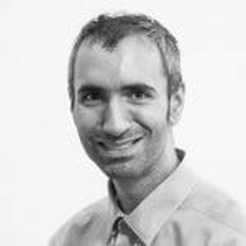Dr. Philip Vaughter
Philip Vaughter joined the Education for Sustainable Development Programme at the United Nations University Institute for the Advanced Study of Sustainability (UNU-IAS) in June of 2015. A native to Minnesota in the United States, he received an undergraduate degree in biology from Iowa State University in the United States and a post-graduate degree in Environmental Sciences from University of Victoria in New Zealand before returning to Minnesota to complete his PhD in Conservation Biology with a focus on Environmental Policy.
Before joining UNU-IAS, he worked as a research fellow at York University in Canada. In Canada, his work focused on analyzing the synergies and obstacles in linking local, regional, and national education policies to UN policy objectives. He also investigated the role of Higher Education Institutions (HEIs) promoting Education for Sustainable Development through curriculum, research, practice, and inter-institutional networks. Philip has taught undergraduate and post-graduate courses in ecology, political science, sociology, and statistics during his graduate and professional career.
Philip Vaughter joined the Education for Sustainable Development Programme at the United Nations University Institute for the Advanced Study of Sustainability (UNU-IAS) in June of 2015. A native to Minnesota in the United States, he received an undergraduate degree in biology from Iowa State University in the United States and a post-graduate degree in Environmental Sciences from University of Victoria in New Zealand before returning to Minnesota to complete his PhD in Conservation Biology with a focus on Environmental Policy.
Before joining UNU-IAS, he worked as a research fellow at York University in Canada. In Canada, his work focused on analyzing the synergies and obstacles in linking local, regional, and national education policies to UN policy objectives. He also investigated the role of Higher Education Institutions (HEIs) promoting Education for Sustainable Development through curriculum, research, practice, and inter-institutional networks. Philip has taught undergraduate and post-graduate courses in ecology, political science, sociology, and statistics during his graduate and professional career.

